For the past 10 years, since the enactment of 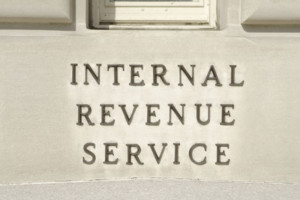 the IRS Whistleblower Office, the IRS has recovered over $3.4 billion because of information submitted by whistleblowers. Out of that sum, $465 million was awarded to whistleblowers. Read Moreabout The IRS Whistleblower Program Completes Its Tenth Year
the IRS Whistleblower Office, the IRS has recovered over $3.4 billion because of information submitted by whistleblowers. Out of that sum, $465 million was awarded to whistleblowers. Read Moreabout The IRS Whistleblower Program Completes Its Tenth Year
SEC Whistleblower Program Posts Record Year
The SEC’s whistleblower program paid out a record $57 million to 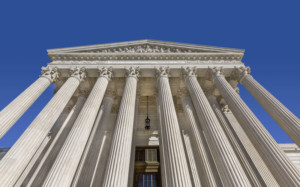 whistleblowers in Fiscal Year 2016. That figure is higher than all previous awards issued through the SEC whistleblower program combined.
whistleblowers in Fiscal Year 2016. That figure is higher than all previous awards issued through the SEC whistleblower program combined.
According to the agency’s 2016 annual report to Congress, available here, the Office of the Whistleblower received over 4,200 tips and enforcement actions led to $584 million in financial sanctions. The number of tips the office received reflects a 40% increase over FY 2012, the first year the office recorded full-year data. According to the report, the increase in tips is due in large part to the growing awareness of the whistleblower program.
Baby Boomers & Medicare Fraud
 The human population is growing at a rapid pace, and in the U.S., this growing population is also aging. The babies born after the Second World War, often referred to as “Baby Boomers,” are now reaching retirement age and eligible for Medicare. The Kaiser Family Foundation reports that almost 10,000 Baby Boomers turn 65 on a daily basis! That’s almost 90 million Baby Boomer eligible for Medicare by 2050. Read Moreabout Baby Boomers & Medicare Fraud
The human population is growing at a rapid pace, and in the U.S., this growing population is also aging. The babies born after the Second World War, often referred to as “Baby Boomers,” are now reaching retirement age and eligible for Medicare. The Kaiser Family Foundation reports that almost 10,000 Baby Boomers turn 65 on a daily basis! That’s almost 90 million Baby Boomer eligible for Medicare by 2050. Read Moreabout Baby Boomers & Medicare Fraud
Perspective on the Tax Gap and the Underutilized IRS Whistleblower Program
 In an April 2016 study released by the IRS, the government reported that an average of $406 billion in taxes was not collected each year between 2008 and 2010. The IRS euphemistically calls this the “tax gap,” i.e., the difference between what taxpayers owe and what they actually pay.
In an April 2016 study released by the IRS, the government reported that an average of $406 billion in taxes was not collected each year between 2008 and 2010. The IRS euphemistically calls this the “tax gap,” i.e., the difference between what taxpayers owe and what they actually pay.
What does the tax gap mean to the average taxpayer? Read Moreabout Perspective on the Tax Gap and the Underutilized IRS Whistleblower Program
Qui Tam Lawsuits Recover Billions for the Federal Government in FY 2015
 Qui tam whistleblowers who filed cases under the False Claims Act returned nearly $3 billion into the federal treasury in Fiscal Year 2015, according to the U.S. Department of Justice.
Qui tam whistleblowers who filed cases under the False Claims Act returned nearly $3 billion into the federal treasury in Fiscal Year 2015, according to the U.S. Department of Justice.
False Claims Act cases in the areas of health care, hospital services, mortgage and financial industries, and defense contracting account for the largest part of recoveries. Whistleblower awards during 2015 totaled $597 million.
Read Moreabout Qui Tam Lawsuits Recover Billions for the Federal Government in FY 2015
Supreme Court to Decide “Implied Certification” Issue
 SCOTUS to decide the issue of “implied certification” in Universal Health Services v. United States ex rel. Escobar
SCOTUS to decide the issue of “implied certification” in Universal Health Services v. United States ex rel. Escobar
On December 4, 2015, the Supreme Court granted the defendant United Health Services’ Petition for a Writ of Certiorari to decide, among other things, the issue of whether the “implied certification” theory of legal falsity under the False Claims Act is viable.
Escobar involved a teenaged girl, a Medicaid beneficiary, who was treated by unlicensed workers who had held themselves out to be social workers, psychologists, and psychiatrists, when they were nothing of the sort. Treatment by these workers led to the girl’s death when she was prescribed a drug that caused her to have seizures, one of which was fatal.
Read Moreabout Supreme Court to Decide “Implied Certification” Issue
Why Whistleblower Laws Are So Important
 Whistleblower laws form the foundation of the False Claims Act and are are crucial because they provide protection and incentives for qui tam whistleblowers (also called relators) to bring information to the government. Under federal and state laws, defendants who violate the False Claims Act are liable for triple damages (plus penalties) to the government.
Whistleblower laws form the foundation of the False Claims Act and are are crucial because they provide protection and incentives for qui tam whistleblowers (also called relators) to bring information to the government. Under federal and state laws, defendants who violate the False Claims Act are liable for triple damages (plus penalties) to the government.
Higher Penalties, Sentences Imposed in Qui Tam Whistleblower Cases
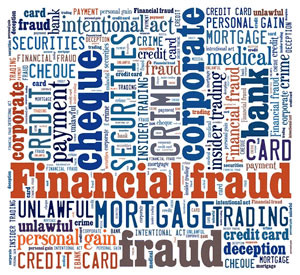 According to a recent study published by Andrew C. Hall, Gerald S. Martin, Nathan Y. Sharp and Jaron H. Wilde, when qui tam whistleblowers participate in financial misrepresentation enforcement actions, the wrongdoers face significantly increased penalties and prison time.
According to a recent study published by Andrew C. Hall, Gerald S. Martin, Nathan Y. Sharp and Jaron H. Wilde, when qui tam whistleblowers participate in financial misrepresentation enforcement actions, the wrongdoers face significantly increased penalties and prison time.
The study’s authors analyzed over a thousand qui tam financial fraud enforcement actions between 1978 and 2012 and determined 145 cases (almost 13% of the total) involved whistleblower information. Due to whistleblowers’ assistance, the government obtained an additional $20.75 to $21.27 billion in judgments, the study estimates. Prison sentences for guilty corporate executives and managers also increased by roughly two years when qui tam whistleblowers were linked with the enforcement action. Read Moreabout Higher Penalties, Sentences Imposed in Qui Tam Whistleblower Cases
Department of Justice Announces Record Amount Recovered in 2014
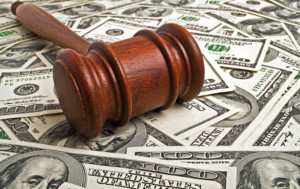 The Department of Justice (DOJ) recently announced that it has collected a record $5.69 billion in settlements involving fraud and false claims against the government for fiscal year 2014. The largest recoveries were in mortgage fraud and healthcare fraud, where the government obtained $3.1 billion and $2.3 billion respectively. Recoveries in qui tam whistleblower cases (actions brought by a whistleblower, known as a relator) totaled nearly $3 billion.
The Department of Justice (DOJ) recently announced that it has collected a record $5.69 billion in settlements involving fraud and false claims against the government for fiscal year 2014. The largest recoveries were in mortgage fraud and healthcare fraud, where the government obtained $3.1 billion and $2.3 billion respectively. Recoveries in qui tam whistleblower cases (actions brought by a whistleblower, known as a relator) totaled nearly $3 billion.
“It has been an extraordinary year for civil fraud recoveries, but the true significance is not in breaking records or making history; it is in the billions of dollars restored to the federal treasury,” said Acting Assistant Attorney General Joyce Branda.
Read Moreabout Department of Justice Announces Record Amount Recovered in 2014
Whistleblower Lawsuits Secure $2.9 Billion for the Federal Government Under the False Claims Act in Fiscal Year 2013
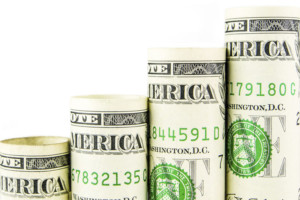 According to a press release issued by the Department of Justice, the federal government recovered over $3.8 billion from False Claims Act cases in 2013. Of the $3.8 billion, $2.9 billion resulted from whistleblower suits filed under the qui tam provisions of the Act. This is the fourth year in a row recoveries under the False Claims Act have topped $3 billion, and this year’s number is surpassed only by last year’s record-breaking recovery of nearly $5 billion. Although health care fraud continues to drive record recoveries, this year prosecutions of procurement and defense contracting fraud returned a record setting $890 million to the U.S. Treasury.
According to a press release issued by the Department of Justice, the federal government recovered over $3.8 billion from False Claims Act cases in 2013. Of the $3.8 billion, $2.9 billion resulted from whistleblower suits filed under the qui tam provisions of the Act. This is the fourth year in a row recoveries under the False Claims Act have topped $3 billion, and this year’s number is surpassed only by last year’s record-breaking recovery of nearly $5 billion. Although health care fraud continues to drive record recoveries, this year prosecutions of procurement and defense contracting fraud returned a record setting $890 million to the U.S. Treasury.
“It has been another banner year for civil fraud recoveries, but more importantly, it has been a great year for the taxpayer and for the millions of Americans, state agencies and organizations that benefit from government programs and contracts,” said Assistant Attorney General Delery.